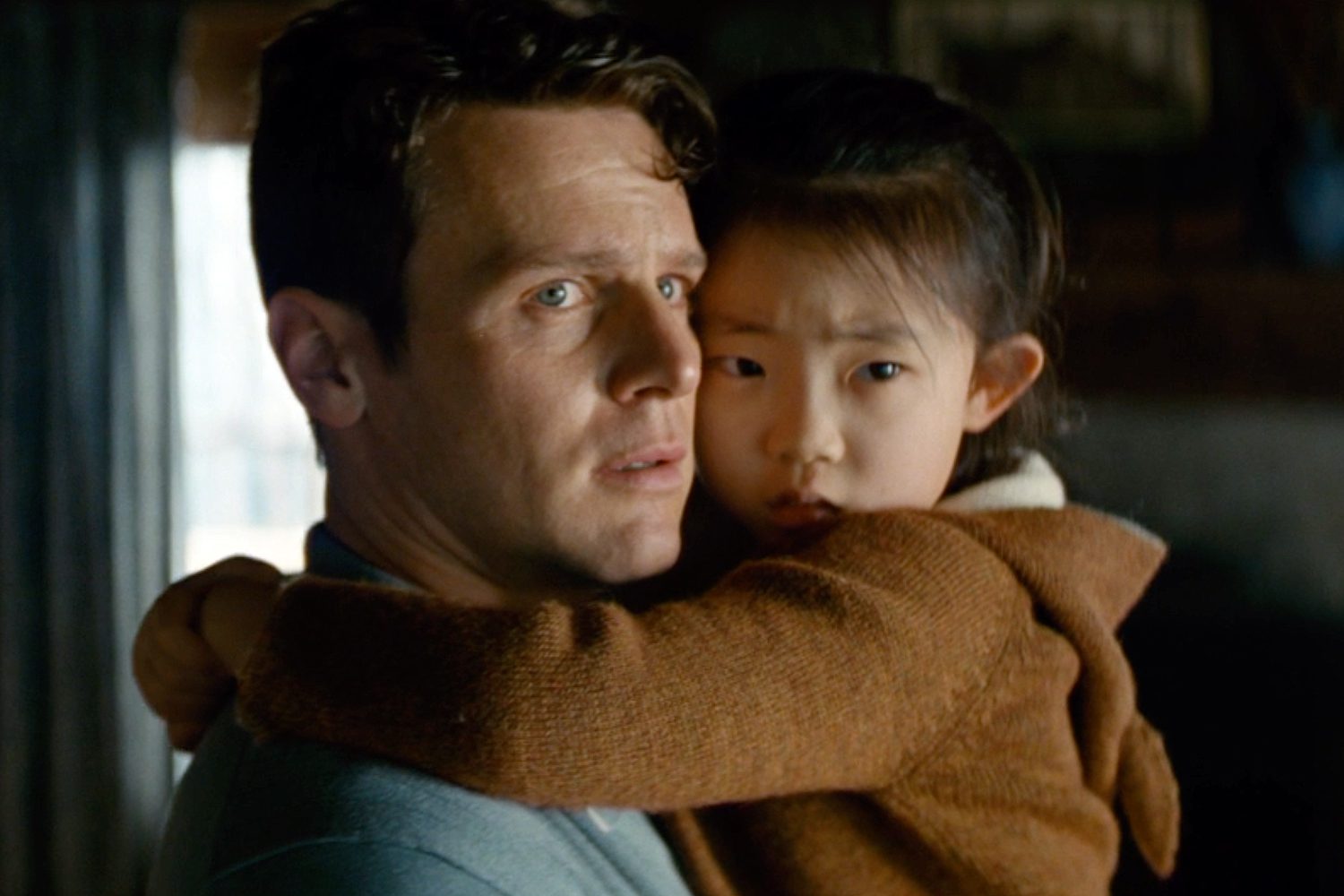REVIEW: Knock at the Cabin (2023)
M. Night Shyamalan is a director I appreciate more than enjoy. I love some of his movies, like Unbreakable and Split, but we all know he has stinkers like The Last Airbender. My feelings on his oeuvre aren’t unique; his filmography has managed to polarize people for decades now. I like that he tries to leave the viewer with something to think about, though. Shyamalan’s movies are thoughtful and wordy to a fault, and I would take that over the opposite. He’s cemented himself as a director with a distinct vision, and I think that’s worth something, even if the execution falls flat sometimes. That being said, is Knock at the Cabin more Sixth Sense or Lady in the Water? Let’s dive in.
Based on the novel The Cabin at the End of the World by Paul G. Tremblay, Knock at the Cabin follows a family (Jonathan Groff, Ben Aldridge, Kristen Cui) on a vacation gone horribly wrong. Four strangers (Dave Bautista, Abby Quinn, Nikki Amuka-Bird, and Rupert Grint) show up at their cabin unannounced, demanding to be let inside. However, this isn’t any ordinary home invasion; Leonard (Bautista) insists that they have a specific mission for the family to carry out, a choice to be made. Each time the family declines to make a choice, catastrophic events ensue. Will they choose in time to save the world?

This is a return to a familiar thematic well for Shyamalan. Throughout the film, we’re asked (through this unfortunate family) if we believe in something greater. Is it worth sacrificing a member of your family to save the world? The problem is that the family doesn’t believe the strangers. How can they choose when they don’t even accept the notion of it serving a higher purpose? Shyamalan also makes use of his usual expository flashbacks to let us meet Andrew (Aldridge) and Eric (Groff) under more normal circumstances. We see them struggle with prejudice, being accepted by Andrew’s own parents, and adopting Wen. Shyamalan also likes to show us the darkness within humanity and then remind us of the goodness to be had in life. We also learn that Andrew is a skeptic who expects the worst and doesn’t believe in any higher power. He even remarks that Eric may pray if he wants, and he won’t pick on him for it. I found the flashbacks very effective in this movie. They inform the viewer of who the characters are, and they always tie into the present scenes. We don’t have any flashbacks with Leonard or his cohorts (with one brief exception), and I also think this is for the best. For most of the film, it’s unclear whether they’re telling the truth or making up the whole apocalypse thing. Andrew and Eric spend the movie torn between one’s skepticism and the other’s open-mindedness, and I believe the intention is for the viewer to feel similarly unsure. I knew pretty early what would happen, but I decided based on Shyamalan’s earlier works.

I have to talk about the cast; this is a great ensemble. There are only seven real characters in this movie, but I was never once bored or distracted. Dave Bautista is a real standout in Knock at the Cabin. He plays against type here as a soft-spoken, empathetic teacher forced to do something unspeakable. I love Jonathan Groff, and I believe that aside from the Frozen movies and the latest Matrix, this is his first major role in a big film. Musical nerds will know him from Glee and Hamilton. He’s an incredibly versatile performer, and his role as Holden Ford in Mindhunter displays that beyond debate. Anyway, I was psyched to see him in this, and he delivers. Eric is the first family member to consider that Leonard may be telling the truth, and the flashbacks imply that he’s religious. Andrew doesn’t believe in anything but the love of his family, but Eric is a believer at heart. Kristen Cui is adorable as Wen, but they don’t focus too much on cute stuff with her. I really like the whole relationship between the family. I was afraid this would be cheesy after the commercial where Wen sings “Boogie Shoes” with her dads. That song is also important in the film, another reaffirmation that there are larger things and a deeper meaning at play in our lives. I disagree with the conclusions Shyamalan draws myself, but I respect that he uses his films to question the big things like this. Ben Aldridge arguably has the more difficult role; he has to go from total disbelief to futile denial as the film goes on. I also enjoyed Rupert Grint as Redmond. I knew him as Ron Weasley from Harry Potter, of course, and his role here is interesting. I won’t say too much, but Redmond isn’t what he initially seems.

Another message of Knock at the Cabin is that life isn’t fair. Eric, Andrew, and Wen don’t deserve the trouble they’ve found themselves in, and the audience is encouraged to question whether the four strangers have any real say in the situation. After all, they’re in danger, too, and aren’t able to make the decision on the family’s behalf.
Knock at the Cabin is insanely entertaining. I wouldn’t call it “fun,” but the performances and ideas explored make it more than worth the time and price of admission. I don’t really have any significant problems with the film’s execution, which is rare, especially for M. Night Shyamalan. I would say that the less you know about this film going in, the better.
Knock at the Cabin (2023)
Plot - 7
Acting - 10
Direction/Editing - 7
Music/Sound - 7
Drama - 10
8.2
Good
Knock at the Cabin is insanely entertaining. I wouldn't call it "fun," but the performances and ideas explored make it more than worth the time and price of admission.







